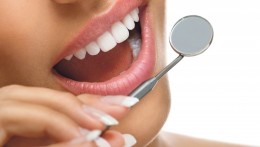1. Know your food
Writer Michael Pollen advises “Don’t eat anything your great-great-great grandmother wouldn’t recognize as food”. This is a solid rule to follow to ensure you eat actual food, rather than chemical-filled food ‘products’. But if time and convenience are key factors in your supermarket shop decisions, a more realistic plan may be to follow the traffic light system.
The traffic light food labeling system has been used voluntarily by many manufacturers in the UK since 2013 so it’s a good idea to understand the levels of sugars, fat, saturates and salt that fall into the 3 categories.

Technology can lend a helping hand in understanding ingredients. The award-winning Fooducate app allows you to scan food labels to learn what’s really in your food, as well as helping you track food intake and exercise.
 Read more on diet:
Read more on diet:
Ensuring your supermarket shop is heart-healthy
What you eat can help keep skin young and healthy
2. Get enough sleep
According to digital health magazine Health Perch, 7 – 9 hours is the optimum amount of sleep per night. In the 1960s, this was the norm, but in these work-hard, play-hard times, this is no longer the case. In a recent TNS global study one third of those surveyed only got 5 or 6 hours sleep a night.

This can have a wide ranging impact, from difficulty concentrating and accelerated skin ageing to more serious health issues. A lack of sleep and disturbed sleep has been linked to a 48 per cent greater chance of dying from heart disease and a 15 per cent greater chance of developing or dying from a stroke.
Fortunately, there are simple steps you can follow to help you nod off – see our Good Sleep Guide – and technology to help you wake up at the right time. The Sleep Cycle app analyses your sleep to wake you up in your lightest sleep phase, in order to help you wake up feeling rested and relaxed.
 Read more on sleep:
Read more on sleep:
Top 10 ways to nod off to sleep
Counting on Sleep Infographic
3. Look after your teeth
 Almost one fifth of the population feel the need to conceal their teeth in photographs, according to researchers at Mintel. If you have issues with your teeth it may not just be your holiday snaps that suffer. Medical research increasingly shows that healthy teeth and gums are connected to a person’s wider health.
Almost one fifth of the population feel the need to conceal their teeth in photographs, according to researchers at Mintel. If you have issues with your teeth it may not just be your holiday snaps that suffer. Medical research increasingly shows that healthy teeth and gums are connected to a person’s wider health.
Chief executive of the British Dental Health Foundation Dr Nigel Carter says: “The link between oral health and overall body health is well documented, and backed by robust scientific evidence. Despite this, only one in six people realises that people with gum disease may have an increased risk of stroke or diabetes. And only one in three is aware of the heart-disease link.”
 While we may think we look after our teeth and gums, research shows that very few of us are actually getting it right. Only 11 per cent of UK adults brush for the dentist-recommended two minutes and, shockingly, 29 per cent of UK adults do not use toothpaste. As well as brushing teeth correctly, it’s important to clean between the teeth in order to prevent tooth decay.
While we may think we look after our teeth and gums, research shows that very few of us are actually getting it right. Only 11 per cent of UK adults brush for the dentist-recommended two minutes and, shockingly, 29 per cent of UK adults do not use toothpaste. As well as brushing teeth correctly, it’s important to clean between the teeth in order to prevent tooth decay.
Elaine Tilling, a member of the British Society of Dental Hygiene & Therapy and TePe’s head of clinical education, says “standard brushing only cleans 60 per cent of the tooth’s surface, whereas cleaning between teeth, with inter-dental brushes, helps prevent gum inflammation, cavities and bad breath.” As over half of UK adults suffer with gum disease, it’s time to get flossing.
 Read more on dental health:
Read more on dental health:
How to keep your teeth and gums healthy
The psychology of a smile
1. Know your food




